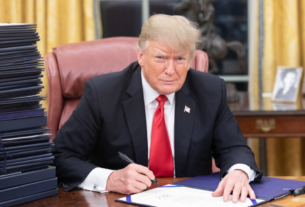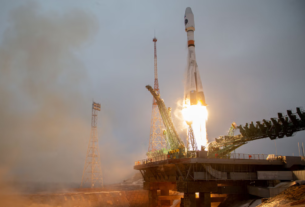Russian Foreign Minister Sergei Lavrov on Sunday praised former U.S. President Donald Trump’s “common sense” approach to ending the war in Ukraine, while accusing European powers of prolonging the conflict. Lavrov, who has served as President Vladimir Putin’s top diplomat for 21 years, made the remarks in an interview with the Russian military newspaper *Krasnaya Zvezda*, emphasizing the need for pragmatic U.S.-Russia relations despite ongoing disagreements.
“Donald Trump is a pragmatist,” Lavrov said, according to a transcript released by the Russian Foreign Ministry. “His slogan is common sense. It means, as everyone can see, a shift to a different way of doing things.” Lavrov suggested that Trump’s focus on practical solutions could help de-escalate tensions in Ukraine, contrasting it with Europe’s stance, which he described as fueling the conflict.
Lavrov criticized European nations for their unwavering support of Kyiv, arguing that their policies have extended the war rather than seeking a resolution. He accused Europe of prioritizing geopolitical interests over peace, claiming that their actions have destabilized the region. The foreign minister’s comments reflect Moscow’s long-standing frustration with Western backing for Ukraine, which has included military aid and economic sanctions against Russia.
The Russian diplomat also highlighted the importance of pragmatic cooperation between global powers, drawing parallels to the U.S.-China relationship. Lavrov suggested that Russia and the U.S. could adopt a similar model, focusing on mutual benefits while managing disagreements to avoid conflict. “We can do a lot of mutually beneficial things without allowing disagreements to collapse into war,” he said.
Lavrov acknowledged that the U.S. and Russia would never agree on everything but stressed the need for both nations to find common ground where interests align. He pointed to past instances of cooperation, such as arms control agreements, as examples of how pragmatic diplomacy can yield results.
The interview also underscored Russia’s view of the U.S. as a dominant global power, with Lavrov stating that Washington still aims to maintain its position as the world’s most influential nation. He argued that this ambition often clashes with Russia’s interests but emphasized the importance of dialogue to prevent escalation.
Lavrov’s praise for Trump’s approach contrasts sharply with his criticism of current U.S. and European policies. He suggested that Trump’s focus on “common sense” could provide a pathway to resolving the Ukraine conflict, while accusing Europe of lacking a clear strategy.
The interview comes at a critical time for Russia, as it faces increasing isolation on the global stage due to its actions in Ukraine. Lavrov’s comments appear aimed at shaping the narrative around the conflict, portraying Russia as a pragmatic actor seeking peace while blaming Europe for prolonging the war. His remarks also signal Moscow’s willingness to engage with the U.S. under the right conditions, particularly if it aligns with Russia’s strategic interests.
Lavrov’s emphasis on pragmatism and mutual benefit reflects Russia’s broader foreign policy goals, which prioritize national interests over ideological alliances. His criticism of Europe’s role in the Ukraine conflict underscores the growing rift between Moscow and Western powers, while his praise for Trump’s approach suggests a potential opening for future diplomacy. As the war in Ukraine continues, Lavrov’s comments highlight the complex dynamics shaping global geopolitics.
The Russian foreign minister’s interview offers a glimpse into Moscow’s perspective on the Ukraine conflict and its relationship with the West. While Lavrov’s remarks may not bridge the divide between Russia and its adversaries, they underscore the importance of pragmatic diplomacy in addressing global challenges. As tensions persist, his call for mutual benefit and cooperation serves as a reminder of the need for dialogue in an increasingly polarized world.




